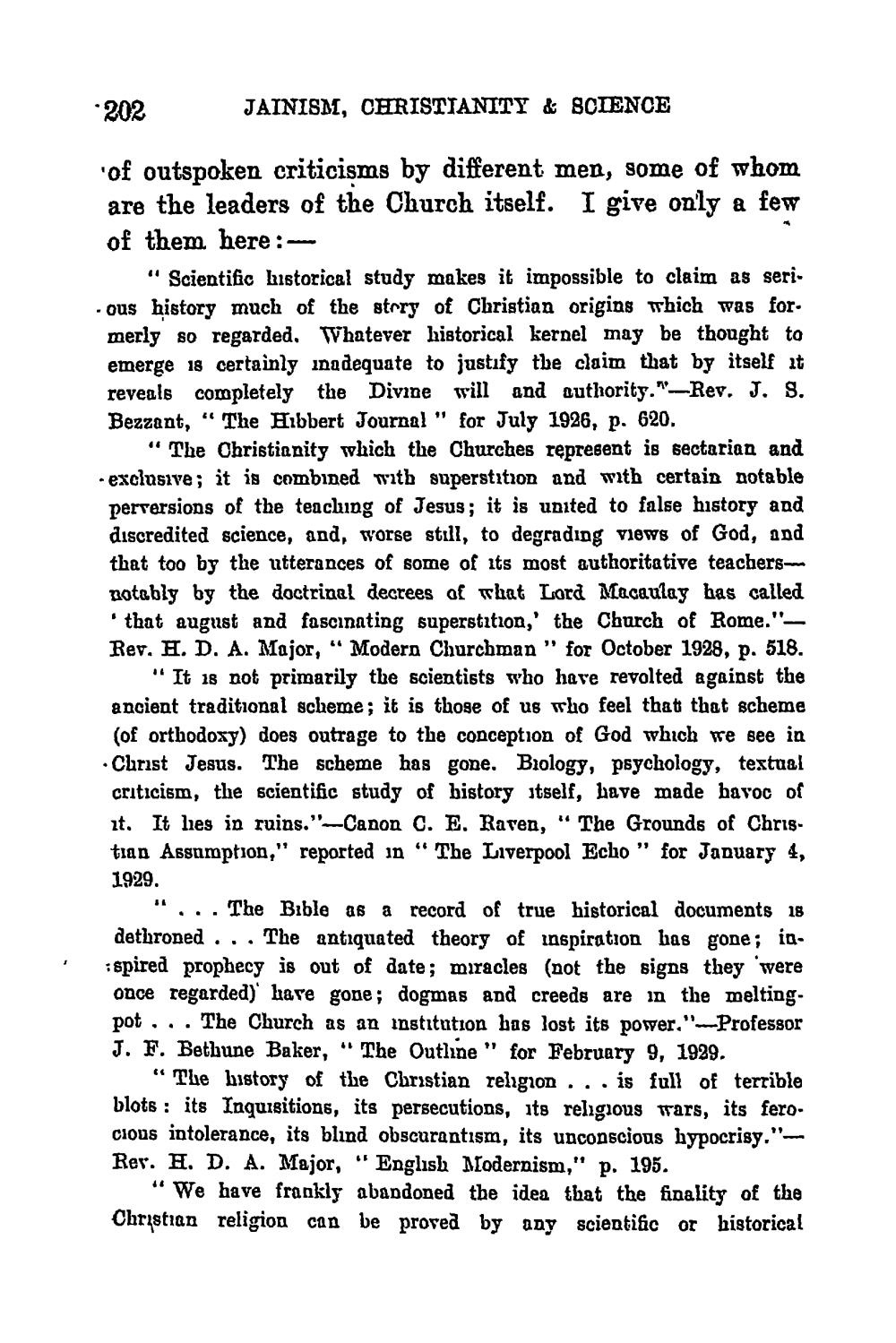________________
202
JAINISM, CHRISTIANITY & SCIENCE
of outspoken criticisms by different men, some of whom are the leaders of the Church itself. I give only a few of them here:
" Scientific historical study makes it impossible to claim as serious history much of the strry of Christian origins which was for. merly so regarded. Whatever historical kernel may be thought to emerge 18 certainly inadequate to justify the claim that by itself it reveals completely the Divine will and authority."-Rev. J. S. Bezzant, “The Hibbert Journal" for July 1926, p. 620.
“ The Christianity which the Churches represent is sectarian and - exclusive; it is combined with superstition and with certain notable
perversions of the teaching of Jesus; it is united to false history and discredited science, and, worse still, to degrading views of God, and that too by the utterances of some of its most authoritative teachers potably by the doctrinal decrees of what Lord Macaulay has called
that august and fascinating superstition,' the Church of Rome."Rev. H. D. A. Major, “ Modern Churchman " for October 1928, p. 518.
"It 18 not primarily the scientists who have revolted against the ancient traditional scheme; it is those of us who feel that that scheme
(of orthodoxy) does outrage to the conception of God which we see in · Christ Jesus. The scheme has gone. Biology, psychology, textual criticism, the scientific study of bistory itself, have made havoc of it. It lies in ruins."-Canon C. E. Raren, " The Grounds of Christian Assumption," reported in "The Liverpool Echo " for January 4, 1929.
"... The Bible as a record of true historical documents 18 dethroned ... The antiquated theory of inspiration has gone; inspired prophecy is out of date: miracles (not the signs they once regarded) have gone; dogmas and creeds are in the melting pot ... The Church as an institution has lost its power," Professor J. F. Bethune Baker, "The Outline " for February 9, 1929.
“The history of the Christian religion ... is full of terrible blots : its Inquisitions, its persecutions, its religious tars, its ferocious intolerance, its blind obscurantism, its unconscious hypocrisy." Rer. H. D. A. Major, “English Modernism," p. 195.
“We have frankly abandoned the idea that the finality of the Christian religion can be proved by any scientific or historical




